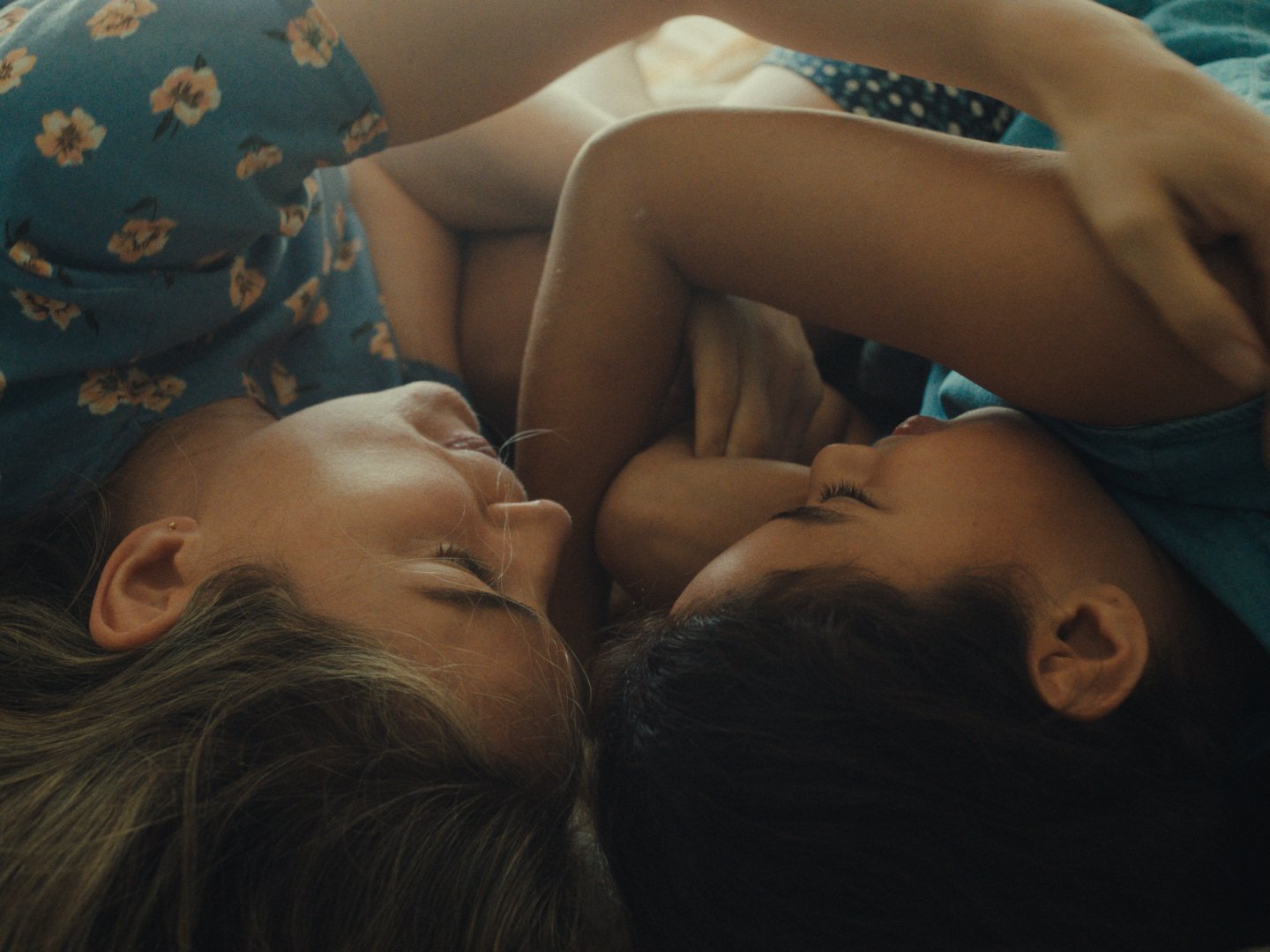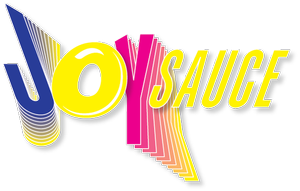Annelise Hickey is Not Half of Anything
Mixed Asian Media - July 31, 2023
By Angela Wong Carbone
Powered by JoySauce
Hafekasi may be Annelise Hickey's first narrative film, but it's no wonder that its unspoken, prescient musings and velveteen portrayals of coming-of-age have been an electric spark for the Tongan Australian filmmaker who won Best Narrative Short at Tribeca. Annelise met with Mixed Asian Media's Angela Wong Carbone to speak about representation and fostering a community of Pacific Islander filmmakers for future collabs.
Interview
You mentioned Tribeca was refreshing because there were so many API folks. What is the situation like in Australia? Is there an API community that you engage with?
Yeah, there's definitely a Pasifika community that I am a part of, but I don't have any Polyneisan filmmaker collaborators [in that circle]. I'm so desperate to meet them.
There's more in Sydney and Brisbane. But down in Melbourne, the Polynesian community [is much smaller]. The last statistic I looked at was that Australia's population is about 26 million and [according to a 2021 census, there are about 330,000 Pacific Islanders living in Australia and about 43,000 of them are of Tongan descent].
So there's not many of us here, let alone in the creative industry.
How did you put together your team for the film? The casting of Hafekasi is very authentic. If there are only a hundred thousand people in that community, it's probably hard to fill those roles, especially young ones.
Mona, the main character, is a 10-year-old girl who's of mixed Tongan Australian and European descent. And we'd already named the film Hafekasi, which is a Tongan word.
Once we [had a] top three, [representation] became an interesting topic of conversation. [If we found a] Tongan Australian girl, [it would suit the film’s] Tongan title. But if a Samoan Spanish girl played the part, I would contemplate changing the name and the character in the script. You look at old, Western films from the ’50s and the ’60s and they put Chinese actors playing Japanese or Americans playing Chinese.
As [someone who] grew up in Australia, not seeing any Polynesian representation, it was a big dilemma:[I had spoken to a] lot of other Tongan women about the issue and we were quite divided. Some said, “It doesn't matter if she's Polynesian or if she's Tongan. The point is that you're representing our Polynesian community.” Whereas other women were very strict: “If your character's Tongan, she has to be Tongan.”
[Most of the] other Polynesians in the film are people I know or family. In terms of crew, I wanted people who had a Polynesian or mixed-race lens. But [we couldn’t find] people. That goes back to me not knowing any other Polynesian filmmakers in Melbourne and that's quite sad, really.
We had the cinematographer Matthew Chuang and he'd done [Blue Bayou] and another Australian film called, Of An Age. He is Taiwanese, raised in Australia but moved to L.A., so in a way [he belongs to a mixed culture as well].
I wanted to ask about the word “hafekasi.” I am only familiar with one other Polynesian term for half-Asian, which in America originates from Hawaii: "hapa." Now that term has become sort of contentious. What does the word “hafekasi” mean to you?
My relationship with the word starts with its English translation: “half cast.” As a kid, people would always use “hafekasi” to explain my ethnicity. People could never figure me out. [Until someone] said, “Oh, you are half cast.” As I've gotten older, my relationship with being ‘half cast’ changed. I'm Tongan Australian. I'm not half of anything. I'm a whole person. So I stopped using [it], but when I would enter Polynesian circles where I don't register as looking really Tongan people would say, “Oh, hafekasi, got it.” [The word] is an immediate way for people to understand [and] relate to you.
I like the word “hafekasi” now. I don't see it as something that's derogatory. I want to champion Polynesian culture and having a Tongan word that says a lot about what the script is about immediately was really important to me. I wanted a Polynesian kid to look at [this movie] and be like, “Oh my God, someone's made a film that has a title in my native tongue, or in my [parents’] native tongue!”
Mona’s mother is always very supportive and loving. There's no “half” of anything there. At the same time, her father isn't immediately in the picture. But Mona’s cultural identity isn’t ever addressed.
The film is drawn from my own personal experience and at that age I didn't really know how to talk about it. I had a lot of shame around being Tongan because I grew up not surrounded by Polynesian people. At that age, everything's so internal. Mona might know that she's Tongan but she doesn't know what that means. Mona’s mom is white and she doesn't know anything about being Tongan, let alone how to navigate a conversation about it. [She loves] her daughter and thinks of her daughter as an extension of her, but [doesn’t realize that] she's white and her daughter's brown, and [consequently] they [experience things] different[ly].
This is your first narrative and having it at Tribeca is such a huge ride. What are you setting sights on next?
I want to make Hafekasi [into] a feature film. But on a more personal level, as someone who's grown up in white communities and always craving Polynesian connection, I just wanna write things so I have excuses to hang out with more Polynesian people. And I want the next generation to see themselves represented on screen.
Are there any Polynesian artists or creatives that come to mind that we’re sleeping on that you feel have inspired you?
Yeah, there's director and filmmaker Vea Mafile'o. She made My Father’s Kingdom.
There’s a great actor Luciane [Buchanan]. She is Tongan Kiwi and she's in this Jason Mamoa AppleTV series called Chief of War. She is a force to be reckoned with.
Is there anything else that you want to say to the community?
[At] Tribeca, a lot of women [who related to the film] came up to me.
There's still not enough stories of us [API folks] out there. The experience at Tribeca taught me that people are so hungry for these stories and want to see themselves reflected on screen, so we should keep making work.
End of Interview
Angela Wong Carbone (she/her) is a decorated actor and writer. Her writing has been recognized by AT&T Hello Lab, Hillman Grad’s mentorship program, The Gotham, Slamdance and others. Raised in New York by an immigrant Chinese mother and Italian American father, Wong Carbone’s personal curiosity toward identity saturates her writing and she has contributed to Eileen Kelly’s Killer and a Sweet Thang and Lulu Gioiello’s Far Near. As an actor, Wong Carbone has starred in NBC’s Chicago Med, AppleTV+’s WeCrashed and IFC Films’ Resurrection. In 2020, she was selected for the 19th annual ABC Talent Showcase. Wong Carbone holds a degree in architecture from Cornell University and makes a mean lasagna.
JoySauce is a multimedia network dedicated to celebrating the full spectrum of Asian American and Pacific Islander narratives. The site boasts a vibrant library of content around entertainment, lifestyle, food, travel, culture, relationships, art, and education in the form of exciting new streaming shows, movies, standup comedy, provocative podcasts, and a suite of editorial updated daily.





